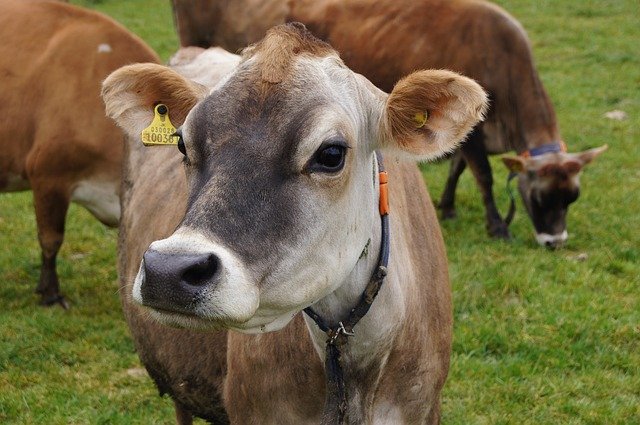Farm Fencing Options for Agricultural Properties
Discover types of farm fencing for your fields, offering protection, organization, and durability. From wire and wooden fences to modern mesh and electric options, these solutions help manage livestock, define property boundaries, and maintain a safe, efficient agricultural environment.

What Are the Different Types of Farm Fencing Available?
Agricultural fencing encompasses several distinct categories, each designed for specific applications and environments. Woven wire fencing features horizontal wires woven together with vertical stays, creating a flexible yet strong barrier ideal for containing livestock. Board fencing utilizes wooden planks attached to posts, offering excellent visibility and a traditional appearance that works well for horse properties.
Electric fencing systems use charged wires to create psychological barriers, providing cost-effective solutions for temporary grazing areas. Split rail fencing combines functionality with aesthetic appeal, using horizontal rails fitted between posts to create boundaries while maintaining an open feel. Each type addresses different agricultural requirements, from livestock containment to property delineation.
Which Types of Farm Fencing Work for Fields?
Field fencing requirements vary significantly based on the intended use and environmental conditions. Barbed wire fencing remains popular for large pastures and cattle operations, offering economical perimeter control with minimal maintenance requirements. The wire’s barbs deter livestock from pushing against the fence while allowing for quick installation across extensive acreage.
High-tensile smooth wire systems provide another field-appropriate option, utilizing tightly stretched wires that maintain their shape and effectiveness over long distances. These systems work particularly well in areas with significant temperature fluctuations, as the wire expands and contracts without losing structural integrity. Field gates integrated into these systems allow for equipment access and livestock movement between pastures.
What Wire Farm Fencing Types and Uses Should You Consider?
Wire fencing options offer versatility and durability for various agricultural applications. Welded wire mesh creates strong, uniform barriers perfect for smaller animals like sheep, goats, or poultry. The welded joints provide superior strength compared to woven alternatives, making this option suitable for areas requiring maximum security.
Chain link fencing, while more expensive initially, delivers exceptional longevity and security for high-value areas like equipment storage or breeding facilities. The galvanized coating resists rust and corrosion, ensuring decades of reliable service. Mesh spacing can be customized to prevent specific animals from passing through while maintaining visibility and airflow.
Smooth high-tensile wire works effectively for rotational grazing systems, allowing farmers to create temporary paddocks that can be easily relocated as needed. This flexibility supports sustainable grazing practices while minimizing long-term infrastructure investments.
How Do You Find Durable Farm Fencing Solutions?
Durability in farm fencing depends on material selection, installation quality, and environmental factors. Galvanized steel components resist corrosion and maintain structural integrity through decades of exposure to weather and agricultural chemicals. Posts treated with preservatives or constructed from naturally rot-resistant materials like cedar provide stable foundations that support fence systems long-term.
Polymer-coated wires combine steel strength with weather-resistant outer layers, extending service life in harsh environments. These materials resist UV degradation, chemical exposure, and physical wear while maintaining their appearance and functionality. Professional installation ensures proper tensioning, adequate post spacing, and appropriate hardware selection that maximizes system longevity.
Understanding the investment required for quality farm fencing helps in planning and budgeting for agricultural improvements. Costs vary significantly based on materials, installation requirements, and local market conditions.
| Fencing Type | Cost Per Linear Foot | Installation Complexity | Expected Lifespan |
|---|---|---|---|
| Barbed Wire | $1.50 - $3.00 | Low | 15-20 years |
| High-Tensile Wire | $2.00 - $4.50 | Medium | 20-25 years |
| Woven Wire | $3.00 - $6.00 | Medium | 20-30 years |
| Board Fencing | $8.00 - $15.00 | High | 15-25 years |
| Chain Link | $12.00 - $25.00 | High | 30-50 years |
Prices, rates, or cost estimates mentioned in this article are based on the latest available information but may change over time. Independent research is advised before making financial decisions.
Proper farm fencing represents a crucial investment in agricultural success, supporting livestock management, crop protection, and property security. The wide range of available options ensures that farmers can select systems matching their specific operational requirements and budget constraints. Quality installation and regular maintenance maximize the return on fencing investments, providing decades of reliable service that supports productive farming operations. Consulting with local agricultural extension services and fencing contractors helps ensure that chosen systems meet regional requirements and industry standards.




